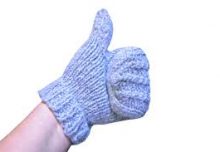 What is the most widely used drug by seniors? It’s the same one that is most widely used by all adults: caffeine. It’s estimated that about four in five adults world-wide consume at least one caffeine-containing beverage daily. I am going to share with you not one, but three quizzes on this go to “medication.”
What is the most widely used drug by seniors? It’s the same one that is most widely used by all adults: caffeine. It’s estimated that about four in five adults world-wide consume at least one caffeine-containing beverage daily. I am going to share with you not one, but three quizzes on this go to “medication.”
- Considering caffeine and some common medical conditions, which of these is true?
a. Patients with chronic kidney disease who drink caffeine have significantly lower mortality.
b. Caffeine improves motor function in Parkinsonian patients.
c. The risk for rosacea is dramatically increased with caffeine consumption.
Odd as this may sound, it is “a”. People with chronic kidney disease have a lower risk of dying if they consume caffeine. It was a study among 5,000 chronic kidney disease patients, and those who drank caffeine drinks had a 25% lower risk of dying. Drinking more caffeine did not get more benefit from the caffeine.
- Which one of these is true about caffeine and heart health?
a. Consuming unfiltered coffee significantly increases the bad cholesterol and triglycerides in the blood stream.
b. Moderate caffeine consumption increases the likelihood of elevated blood pressure.
c. Regular caffeine consumption increases the deposits of calcium in the arteries.
Again, it is “a”. It is all about how the coffee is prepared, because unfiltered coffee can have some bad effects on blood cholesterol. The lesson here must be that filters good; no filters bad.
- Although this may vary by individual, what is the “toxic level” of caffeine in the blood system of a healthy adult?
a. 400 mg per deciliter.
b. 600 mg per deciliter.
c. 800 mg per deciliter.
Okay, you may be on to me if you said “a”. There is variability across individuals, but 400 mgs is the limit, so more of a good thing can be a bad thing. And the very young have even lower threshold which is a bit scary with all the high caffeine canned beverages available to your people these days.
By now, you have to be wanting to know how many milligrams in a cup of caffeine. The answer is about 95 milligrams, but of course, that may vary depending on who is making the coffee. Now, how did you do on the test? If you are satisfied with your score, figure out how much caffeine you have had so far today to see if you should reward yourself with a trip to the coffee maker.
Charlotte Bishop is an Aging Life Care Advisor, Geriatric Care Manager and founder of Creative Care Management, certified professionals who are geriatric advocates, resources, counselors and friends to older adults and their families in metropolitan Chicago. She also is the co-author of How Do I Know You? A Caregiver’s Lifesaver for Dealing with Dementia.






